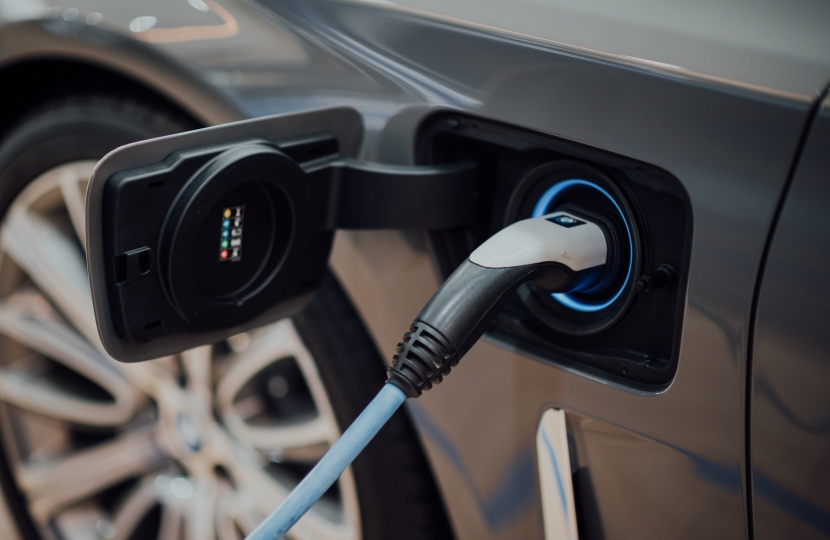
New homes and buildings such as supermarkets and workplaces, as well as those undergoing major renovation, will be required to install electric vehicle charge points from next year, under new legislation announced by Prime Minister Boris Johnson.
Up to 145,000 extra charge points will be installed across England each year thanks to these regulations, in the run up to 2030 when the sale of new petrol and diesel cars will end in the UK. This builds on the over 250,000 home and workplace charge points the government has already supported to date.
With the majority of charging happening at home, this will mean people can buy new properties already ready for an electric vehicle future, while ensuring charge points are readily available at new shops and workplaces across the UK – making it as easy as refuelling a petrol or diesel car today.
As well as new homes and non-residential buildings, those undergoing largescale renovations which leaves them with over 10 parking spaces will be required to install electric vehicle charge points.
After consulting with industry, the Government will also be going further to make it easier and simpler for people to go electric, by introducing simpler ways to pay whilst travelling, such as contactless, at all new fast and rapid charge points.
This comes as the Prime Minister addresses the CBI annual conference, where he’ll set out how the UK can create a first mover advantage in the biggest transformation of the global economy in 200 years, if the public and private sectors work in partnership to seize the opportunities of net zero, from electric vehicles to clean power.
The Government has also announced today that following a successful pilot with businesses, Innovate UK will deliver a new three-year programme of £150m in new flexible and affordable Innovation Loans to help British SMEs commercialise their latest R&D innovations.
This programme supports businesses to grow, scale up and create new highly-skilled jobs in the process, including those who would have otherwise been unable to secure private loans.
Whilst this is open to a variety of sectors, green businesses will be able to apply from early next year, many of whom have already been benefiting during the pilot as the UK transitions to net zero.
Thanks to innovation loans, 70% of surveyed businesses who were part of the pilot are now also offering customers greener alternatives to their existing products.
The Government has also confirmed today nearly £10 million in funding for a first-of-a-kind new hydrogen project in the UK’s largest onshore windfarm near Glasgow.
£9.4 million will be invested into the Whitelee green hydrogen project to develop the UK’s largest electrolyser, a system which converts water into hydrogen gas as a way to store energy and supply local transport providers with zero-carbon fuel.
Developed by ITM Power and BOC, with ScottishPower, it has the potential to store and produce the equivalent of enough green hydrogen to fuel over 200 bus journeys travelling between Glasgow and Edinburgh each day.

